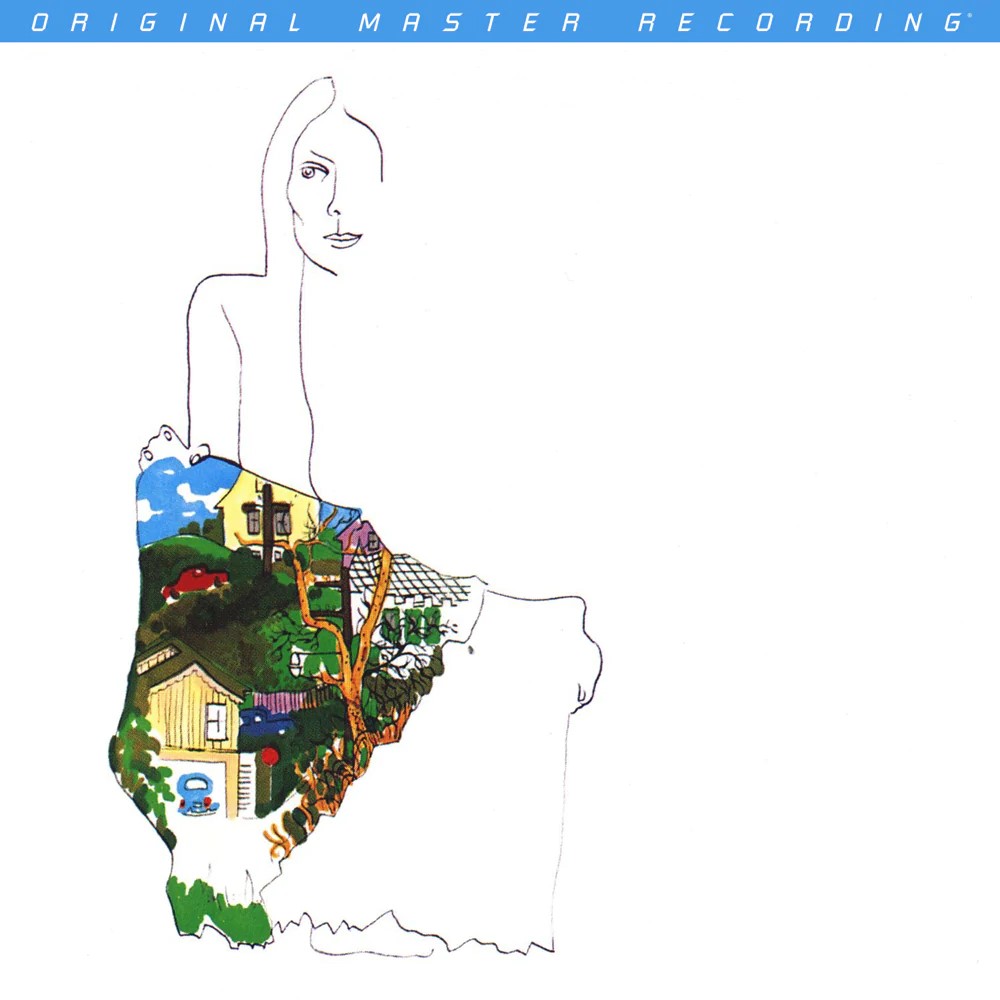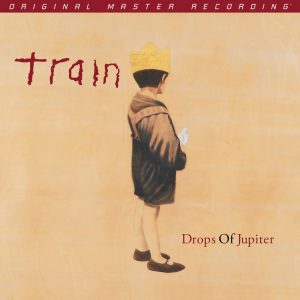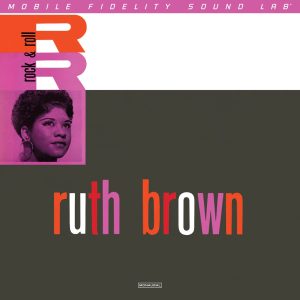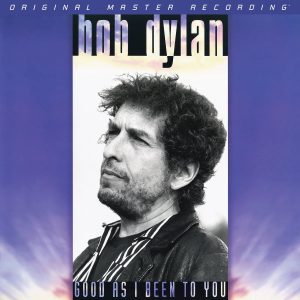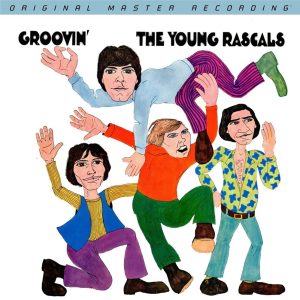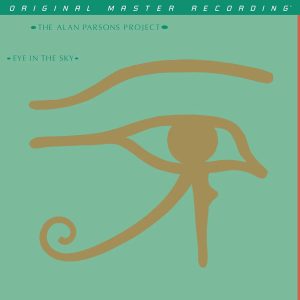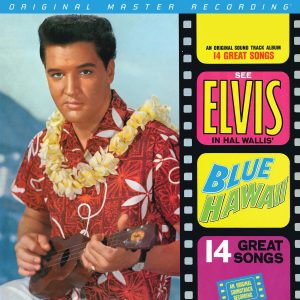
MoFi Joni Mitchell – Ladies of the Canyon SACD
Out of stock. Contact us to check delivery times
Where to buyDetails
Ladies of the Canyon can be viewed as Joni Mitchell’s coming-out party. Having recently moved to Lookout Mountain in Los Angeles’ Laurel Canyon area — her house is depicted in a watercolor painting she made for the record’s cover — the Canadian icon turned to her immediate surroundings for inspiration the while taking the pulse of national affairs, corporate enterprise, celebrity, and her relationship with Graham Nash. The 1970 album finds the singer-songwriter morphing into the groundbreaker who would shed folk music’s constructs and wade into pop, jazz, soul, and poetry with a combination of depth, sophistication, self-examination, and acumen no one had ever heard.
Sourced from the original analog master tapes, Mobile Fidelity’s numbered-edition hybrid SACD delivers Ladies of the Canyon with alluring intimacy, detail, balance, and depth. Marking the first time the record has received audiophile treatment, it’s one of six iconic Mitchell efforts Mobile Fidelity is reissuing on definitive-sounding vinyl and SACD sets.
Playing with organic warmth, superb clarity, and ample spaciousness, this collectible edition does justice to the record that turned Mitchell into a star. Primarily recorded solo, with spare accompaniment on select tracks, she practically takes up residence in your listening room. Her voice, piano, and guitar image with spot-on precision and three-dimensionality; the music is focused, emotional, natural. Auxiliary instrumentation — cello, clarinet, baritone saxophone, Milt Holland’s deft percussion — is seamless, cohesive, steady. Notes bloom and decay as they do on a live stage; black backgrounds add to the realism.
Deemed “powerful and brilliant” upon release by The New York Times, Ladies of the Canyon followed Mitchell’s first Grammy-winning effort (Clouds) and marked the first of six consecutive masterworks she made en route to becoming the most celebrated singer-songwriter of both her generation, and, arguably, all time. It’s the first record on which the then-26-year-old featured the piano, a creative decision of immeasurable significance; first to attain platinum status, which transformed Mitchell into more than a folk figure; first to see her taking more chances with her singing; and the last on which she comes across upbeat, largely unencumbered by the complex themes and personal ache that would occupy her for the foreseeable future.
Not that Mitchell ignores the notions of freedom, independence, spiritualism, and loss that form the core of the subsequent Blue. Two songs about her relationship with Nash — “Willy” and “Blue Boy” — address those ideals in poetic fashion, the tender goodbyes asserting Mitchell’s stances on domestication, reliance, and love. On “For Free,” Mitchell fearlessly confronts the commercialism and selling out that accompanied fame, and which was expected from musicians — concepts which she refused to entertain.
“The Arrangement” trods similar ground, rebelling against the notoriety and monetary wealth gained in exchange for giving up one’s identity, integrity, belonging, and sense of self. “You could have been more,” Mitchell repeats at the tune’s close as if interpolating Marlon Brando’s timeless “contender” scene in On the Waterfront. One major difference: Mitchell is standing up for women amid an environment filled with toxic masculinity. Yet she really stands for liberation, for being alive, true, and present, with the love triangle she outlines in “Conversation” questioning how much a person belongs to another — and at what cost. In that narrative, based around a nerveless male caught up in a dead-end cycle, the powerful figures are women.
Mitchell radiated such confidence and courage, producing Ladies of the Canyon herself after realizing she didn’t need the services of an outsider when she already knew what she wanted. She just required a competent and collaborative engineer, who she landed in Henry Lewy. Fittingly, on the record’s affectionate title track, she celebrates community and a trio of women — all real, all from her Laurel Canyon neighborhood — who, individually, as a visual artist, free-spirited mother, and circus-raised imagineer, respectively, were all reflected in Mitchell herself. Akin to Trina, Annie, and Estrella, Mitchell also had an affinity for wearing beautiful clothes, hosting friends, baking sweets, and weaving “a pattern all her own.”
That pattern most famously materializes on the album’s closing trio of songs — their unconventional placement on the record likely another sly acknowledgement of Mitchell’s disdain for commercialism, or at the very least, catering to its demands — each, then and now, a classic.
With “Big Yellow Taxi,” inspired by Mitchell’s trip to Hawaii in 1968 on which she witnessed the natural landscape changing to cement before her eyes, she both sounded an ecological alarm of the moment and devised a contagious, hopeful sing-a-long that sticks in your head for days. Written after she was forced by management to skip the festival in favor of appearing on a television show the day after it ended, the arresting “Woodstock” captures the cultural event and its meanings from a unique albeit universal perspective indicative of Mitchell’s finest hours.
Ditto the immortal “The Circle Game,” a philosophical and metaphor-laden observation about time, dreams, and progression credited by Rolling Stone for launching the singer-songwriter movement. With months of releasing Ladies of the Canyon Mitchell would find herself at the center of that very development — and preparing songs for another album whose impact is still felt today.
Track List
- Morning Morgantown
- For Free
- Conversation
- Ladies of the Canyon
- Willy
- The Arrangement
- Rainy Day House
- The Priest
- Blue Boy
- Big Yellow Taxi
- Woodstock
- The Circle Game
